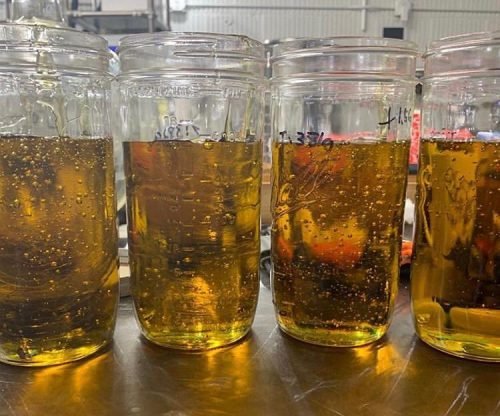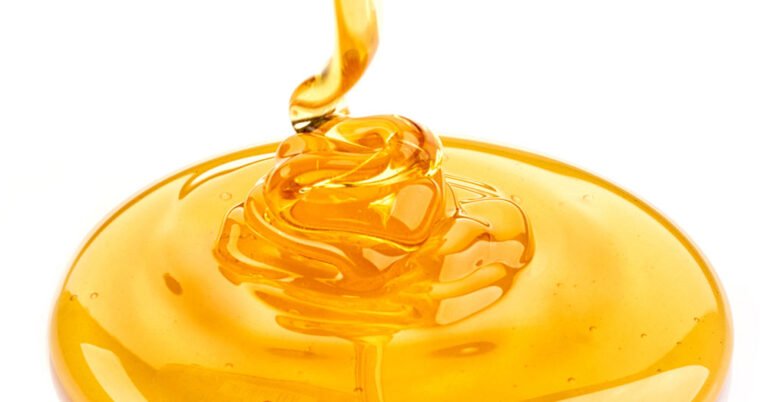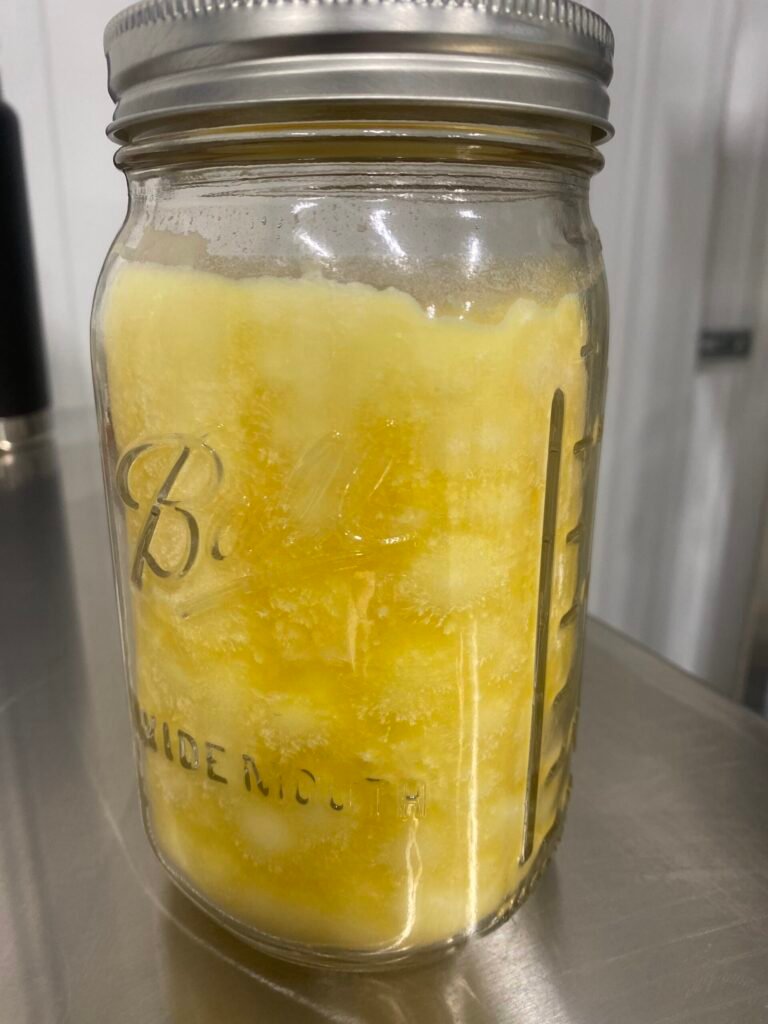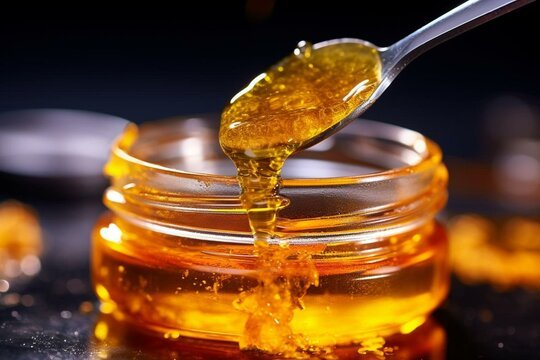What is “THCA Distillate”?
“THCA distillate”: while it’s a title that gets thrown around a lot in cannabis culture, we’re here to fill you in on why it’s technically inaccurate. This tempting term might sound like it’s a high-potency cannabis extract made from tetrahydrocannabinolic acid (THCA), the science just doesn’t back it up.
THCA, in its purest form, is a crystalline substance—not a liquid. And since distillation of cannabinoids involves prolonged heat, the process will inevitably convert THCA into Delta-9 THC. So, if you’re being offered “THCA distillate,” you’re being peddled into purchasing a misunderstanding—or worse, misinformation.
In this guide, we’re examining what’s real and what’s not in the world of THCA products. We’ll start by breaking down cannabis extract methods and distillation techniques, then take a deeper dive into what a THCA extract truly is. We’ll also cover the crucial differences between THCA vs. THC in terms of legality and benefits, and round things out with smart tips on how to shop for and store THCA-based products. Whether you’re a curious consumer or a wholesaler looking for clarity, this is your roadmap to getting it right.
Cannabis Extract and Distilling Cannabinoids
To understand the confusion around THCA distillate, we’ve got to start with the basics: how cannabinoids are extracted and refined.
Cannabis extract is a broad term that refers to any substance pulled from the cannabis plant through a process of extraction. This includes everything from solventless rosin to live resin, badder, wax, and yes—distillate. The two most common types of refinement in this category are:
- Distillates: These are made using a process that involves heating the extract to evaporate and then condense the desired compound into a purified liquid. It’s efficient, potent, and shelf-stable.
- Isolates: These go even further, purifying the cannabis compound into a single cannabinoid, often in powder or crystalline form—like CBD isolate or THCA isolate.
And if you have spent very much time in the commercial cannabis market, you may have seen “distillate” attached to cannabinoids such as Delta-9 or CBD. Distillation for cannabinoids like THC or CBD relies on their natural state as either viscous or liquid compounds. The process involves heating the cannabinoid to its boiling point under vacuum conditions and condensing the vapor into a purified form. Delta-9 THC, for instance, distills at approximately 315–320°F.
But that’s a problem when it comes to THCA…
THCA Extract and Distillation
So why doesn’t THCA distillate exist? Simple: THCA can’t take the heat.
Here’s what we mean.
THCA (tetrahydrocannabinolic acid) is the precursor to THC. It’s found in raw cannabis and becomes Delta-9 THC through decarboxylation, a process that occurs when the compound is exposed to heat—typically around 221–248°F.
But — distilling THCA would require maintaining temperatures far above that range (usually 300°F or more). At those temps, THCA is no longer THCA. It decarbs into THC, making “THCA distillate” a misguided term.
THCA cannot be distilled without converting to THC.
So, let’s compare the two processes:
- Distilling THC: Involves prolonged exposure to high temperatures to isolate and purify Delta-9 THC.
- THCA extraction: It preserves the THCA molecular structure because it is a cold process. Often using solvents like ethanol, butane, or pentane—each chosen specifically for their low boiling points (e.g., butane at 31°F), the temperatures are kept low to avoid decarbing the THCA. The result: crystalline compounds like THCA diamonds or THCA isolate powder.
Referring to the standard definitions of distillate as:
- Something formed by distilling
- A liquid product condensed from vapor during distillation
So, let’s examine each of the cannabinoids in their purest state. THCA is a crystal, while THC is a liquid. Meaning that by the definition of distillate alone, “THCA distillate” isn’t real because THCA isn’t a liquid and cannot be distilled without becoming Delta-9 THC.
In essence: the term “THCA distillate” contradicts the physical nature of the compound itself.
THCA vs THC
Backing it up to the basics just a moment…let’s wrap our heads around why it even matters to distinguish the two cannabinoids in the first place. As we mentioned, THCA fairly readily converts to THC…so they must be pretty similar, right?
THCA and THC are, in fact, very different compounds with unique effects, benefits, and legal restrictions. We have a whole article to help you dive into understanding the key differences between THCA vs. THC, but here’s a general rundown:

Benefits
The benefits of THCA distillate are often misrepresented—mainly because that product doesn’t exist as labeled. But THCA benefits, in general, are well-documented. Non-psychoactive in its raw form, early research and anecdotal reports suggest THCA may have:
- Pain-relief
- Anti-inflammatory properties
- Neuroprotective effects
- Nausea and vomiting relief
- Muscle relaxation and spasm relief
- Antioxidant support
The benefits of Delta-9 THC overlap with THCA, while also delivering a euphoric “high”:
- Pain-relief
- Appetite stimulation
- Nausea and vomiting relief
- Sleep support
- Muscle relaxation and spasm relief
- Mood enhancement
- Anit-inflammation
- Neuroprotection
Effects
THCA is the raw, non-psychoactive form of THC found in fresh cannabis. In its natural state, as long as it is NOT heated, it doesn’t get you high. Instead, it offers subtle support, with users reporting a sense of reduced inflammation, tension, or nausea, and calmness without changes in perception or mental clarity.
THC is the converted form of THCA when it is heated (via smoking, vaping, or cooking). It IS psychoactive, meaning it produces the classic cannabis “high.” THC binds directly with CB1 receptors in the brain, resulting in reported euphoria, altered perception, and potential relief from pain, stress, and insomnia.
In short:
- THCA = non-psychoactive, wellness-focused potential
- THC = psychoactive, recreational and medicinal effects
Both cannabinoids have value—but they serve very different purposes.
So while THCA for pain relief is a legit avenue worth exploring, you’ll want to look for THCA diamonds, tinctures, or edibles made with raw THCA—not mislabeled distillate.
Moreover, make note of the conversion temperatures for THCA and avoid subjecting it to heat in order to preserve its functionality.
Legality
Another reason it is dutiful to understand the difference between cannabinoids is because they are each scrutinized differently under the law.
And — one of the biggest reasons THCA is turning heads in 2025 is its legal status. In many states, THCA is technically because it’s not psychoactive until it’s heated and turned into THC. In reference to the 2018 Farm Bill, products with high THCA content can legally be sold as hemp—so long as they contain less than 0.3% Delta-9 THC by dry weight.
The THCA distillate legal status debate will likely continue to evolve, so it’s important to check local laws before buying or selling THCA products.
Your Guide to Getting THCA Products
So, now you’re an informed shopper who knows that “THCA distillate” isn’t a real product. So how do you shop?
Our first piece of advice: Identify your goals, then go from there.
By that we mean: decide what kind of experience you’re hoping to get from your cannabis product. Do you want a traditional psychoactive high, or to keep a clear mind? Here are some reasons you may choose consuming THCA over THC:
- No high: Ideal for daytime use, people with THC sensitivity, or those avoiding intoxication altogether
- More functional: Users can maintain full mental clarity while addressing pain, inflammation, or nausea
- Legal gray area: THCA is often legal in areas where THC isn’t (though that may be changing)
How to Shop
There are a few product categories where THCA extract is the real deal:
- THCA Isolate: Pure THCA in crystalline powder form, often used in formulations or for DIY infusions.
- Raw THCA Tinctures: Typically alcohol- or oil-based and kept cool to prevent decarbing.
- Cold-pressed Edibles: Some companies create edibles that preserve THCA by avoiding high temperatures during production.
- THCA Diamonds: These are the most popular form of purified THCA and often come bathed in terpene-rich sauce for dabbing or vaping. *Dabbing and vaping both involve enough heat to convert THCA to THC.
And, importantly, to make sure you’re getting what you pay for, look for THCA distillate purity levels in your product’s certificate of analysis (COA). Transparent and reputable brands like Smoky Mountain CBD should have a COA for every product in their inventory. This will clarify exactly how much THCA is present—and whether it’s already been partially converted into Delta-9 THC.
Be wary of products claiming to be “THCA distillate.” Ask questions. Read labels. If it doesn’t have a COA or can’t prove that it hasn’t been heated beyond 220°F, it’s probably not THCA.
If you’re looking for THCA distillate wholesale suppliers, make sure they’re transparent about their extraction methods and provide up-to-date lab testing that shows you’re getting THCA in its true, raw form—not something that’s already been converted to THC.
Lastly, let’s talk flower. In your product search, you’re sure to come across “THCA flower” or buds, nugs, etc. Smoky Mountain CBD, for example, has about 15 potent, slow-cured strains that you can shop for directly on our website. THCA flower is raw, unheated cannabis that’s rich in tetrahydrocannabinolic acid—the non-psychoactive precursor to Delta-9 THC. It typically looks, smells, and feels just like traditional high-THC cannabis, but legally qualifies as hemp under the 2018 Farm Bill. But, once you light it, vape it, or cook with it, the THCA converts into psychoactive THC through decarboxylation. THCA flower will get you high when consumed with heat. So, that’s why we suggest identifying with your consumer goals before shopping, as labels can be confusing without context.
How to Store
So you’ve done your homework: you’ve purchased THCA extract knowing that it’s not THCA distillate, and now you need to store it responsibly. Please note that there are wrong ways to store THCA that jeopardize the potency and quality that you paid for:
Tips for storing THCA products:
- Keep it cool: Store in a refrigerator or cool, dark place. Avoid temperatures over 200°F.
- Air-tight is key: Oxygen can degrade cannabinoids over time. Use vacuum-sealed containers or jars with tight lids.
- Limit light exposure: UV rays can destabilize cannabinoids, so opt for amber glass or opaque packaging.
Proper storage extends the shelf life of your THCA extract and keeps the compound from converting into THC prematurely. As it may not always be easy to adhere to these precautions, or perhaps you have acquired your product from an indirect source, we have a couple of tricks for checking your stash:
Signs Your THCA Product Was Exposed to Heat
- You feel high from something that shouldn’t be psychoactive (like a tincture or edible marketed as raw THCA).
- Lab tests (if available) show increased Delta-9 THC levels and decreased THCA levels.
- Texture changes—THCA isolate or diamonds that were powdery or crystalline may start to look sticky, syrupy, or resinous (a sign they’re breaking down or decarbing).
- Aroma shift—raw THCA flower should smell fresh or herbal. If it smells more like combusted cannabis or has an unusually strong scent, heat may have altered the terpenes and cannabinoids.
Signs of Light or Oxygen Exposure
- Color changes: THCA isolates or diamonds may yellow, darken, or lose their clarity.
- Loss of potency: You might notice weaker effects, especially for wellness uses like inflammation or nausea.
- Crumbly or degraded texture in concentrates—oxygen can cause THCA crystals to dry out or become chalky.
- Packaging failure: If the seal on your container is loose, cracked, or compromised, that could speed up degradation.
Once you acquire your THCA product, we recommend labeling and dating it yourself. That way you at least know how long it’s been stored and under what conditions while in your possession.
How to Consume
THCA extracts, like isolate or diamonds, are highly concentrated compounds. Even in their raw, non-psychoactive state, they deliver noticeable anti-inflammatory or wellness benefits. Here’s what we recommend for yielding the best experience from your extracts:
Go Beyond The Buzzwords
While the cannabis space is filled with innovation it is also wrought with misinformation. “THCA distillate” sounds appealing as a potent player to add to your stash, but it’s scientifically inaccurate. You can’t distill a crystalline compound without turning it into something else.
When shopping for cannabis extract or THCA products, always look deeper than the label. Understand the processes behind THCA extraction, ask for lab results, and stay informed about THCA distillate legality in your state.
And finally, go with brands that don’t use inaccurate buzzwords to get you clicking. We want you to click with confidence and know exactly what you’re consuming. Always. We offer a robust selection of third-part lab tested products, wholesale opportunity, COAs for every single product, and a pledge to provide the absolute best cannabis products in the market, including pure goods and benefit-driven blends.

*Disclaimer: This content is for informational purposes only and does not constitute medical or legal advice. Always consult a qualified healthcare provider before using cannabis products. The legal status of cannabinoids, including THCA and THC, varies by state and jurisdiction—check your local laws before purchasing or consuming. Statements regarding cannabis have not been evaluated by the FDA and are not intended to diagnose, treat, cure, or prevent any disease.
THCA Distillate
Everything you need to know about THCa distillate, including the distillation process, benefits, and how it’s used in cannabis extraction.
With the current interest and popularity surrounding THCa, it was inevitable that the concept of THCa distillate would arise, sparking curiosity and raising questions. While the term suggests a distilled form of THCA, the reality is more nuanced.
In the realm of cannabis extraction, distillation plays a pivotal role in isolating and refining key components of the plant to create highly purified extracts. This process relies on the principle of separating substances based on differences in their boiling points. When applied to cannabis, distillation can yield a variety of potent and versatile extracts.
In this document, we will delve into the intricacies of distillation in cannabis extraction, focusing on THCa distillate. We will explore the production process, characteristics, and uses of distillates, as well as clarify the distinction between THC and THCa distillate. Let’s embark on a journey to understand the science and artistry behind distillation in the world of cannabis extraction.
Introduction to Cannabis Distillation
Distillate is a highly refined cannabis extract known for its potency and purity. This extract is produced through a process called distillation, which separates and refines cannabinoids and other compounds in cannabis based on their boiling points.
Production Process
The production of distillate begins with the extraction of cannabinoids from the cannabis plant using solvents such as ethanol or CO2. This crude extract is then further refined through a series of distillation steps.
- Pre-Distillation: The crude extract is first subjected to winterization or dewaxing to remove impurities such as fats, lipids, and waxes. This step helps purify the extract and concentrate the cannabinoids.
- Fractional Distillation: The purified extract is then subjected to fractional distillation, where cannabinoids are separated based on their boiling points. This process allows for the isolation of cannabinoids in their purest form.
- THC Isolation: The final step involves isolating THC from the other cannabinoids present in the extract. This is typically achieved through further distillation or chromatography techniques, resulting in a highly pure THC distillate.
Characteristics
- Potency: Distillate is one of the most potent forms of concentrates available, often exceeding 90% concentrations.
- Purity: Due to the distillation process, distillates are free from many impurities found in raw cannabis material, such as plant matter and residual solvents.
- Versatility: Distillates are versatile extracts that can be used in various cannabis products, including edibles, tinctures, vape cartridges, and topicals.
Distillate is a valuable cannabis extract known for its high potency and purity. Produced through a meticulous distillation process, distillates serve as a cornerstone in the formulation of many cannabis products, offering consumers a potent and versatile option for their cannabis needs.
THCa Distillate vs. THC Distillate
While the terms “THCa distillate” and “THC distillate” are sometimes used interchangeably, there is a fundamental difference between the two based on the chemical composition of the final product.
THCa Distillate
- Composition: THCa distillate theoretically contains only tetrahydrocannabinolic acid (THCa), the non-psychoactive precursor to THC found in raw cannabis.
- Production Challenges: Producing a true THCa distillate without decarboxylation (conversion to THC) is challenging due to the heat involved in traditional distillation processes.
- Practicality: While THCa distillate is not commonly produced, THCa-rich extracts such as diamonds and crumble are popular among consumers seeking high-potency cannabis concentrates.
THC Distillate
- Composition: THC distillate contains predominantly delta-9-tetrahydrocannabinol (THC), the psychoactive compound in cannabis, along with other cannabinoids and terpenes.
- Production Process: THC distillate is produced by distilling a cannabis extract to isolate and concentrate THC. Some decarboxylation of THCa to THC occurs during this process.
- Versatility: THC distillate is widely used in the cannabis industry for its potency and versatility, serving as a key ingredient in edibles, vape cartridges, tinctures, and topicals.
Clarification
While the term “THCa distillate” may indicate a high THCa plant material was used. It is more accurate to refer to the final product as “THC distillate,” acknowledging that the THCa has been converted to THC during production. The distinction is important for consumers seeking specific cannabinoid profiles and effects from cannabis products.
Other THCa Concentrates
In addition to distillates, there are several other cannabis concentrates that contain high levels of THCa. These concentrates offer a unique experience for consumers looking for potent cannabis products.
THCa Diamonds
- Description: THCa diamonds, also known as THCa crystalline, are pure THCa crystals that form in cannabis extracts under specific conditions. They are often the most potent form of THCa available, with purity levels exceeding 99%.
- Production: THCa diamonds are typically produced using a solvent-based extraction method, followed by a process of precipitation and crystallization to isolate the THCa crystals.
- Use: THCa diamonds are popular among consumers seeking high-potency cannabis products. They can be consumed on their own or added to other cannabis products for increased potency.
THCa Crumble
- Description: THCa crumble is a concentrate that has a crumbly texture and contains high levels of THCa. It is less refined than THCa diamonds and may contain other cannabinoids and terpenes.
- Production: THCa crumble is produced using similar methods as other cannabis concentrates, such as extraction with solvents like butane or CO2, followed by a process of purging to remove residual solvents.
- Use: THCa crumble is often used in dabbing, where it is vaporized and inhaled for its potent effects. It can also be added to other cannabis products or used as a standalone product.
THCa Isolate Powder
- Description: THCa Isolate Powder is a highly refined cannabis product that consists of nearly pure THCa. With a purity level of over 99%, this crystalline powder provides a potent and versatile form of THCa suitable for a variety of applications.
- Production: The production of THCa Isolate Powder involves a detailed extraction process using solvents, typically followed by winterization to remove impurities. The extract is then refined through a series of filtration and crystallization steps, resulting in a fine, white powder that is almost entirely THCa.
- Use: THCa Isolate Powder is favored by consumers looking for a pure and potent form of THCa. It can be used in various ways, including dabbing, mixing with other cannabis products to enhance potency, or incorporating into edibles and topicals for tailored effects.
-
In the ever-evolving cannabis market, THCa distillate is rapidly gaining attention as a powerhouse of potency and purity. Known for its raw potential and unmatched versatility, THCa distillate offers users a dynamic experience that elevates their cannabis journey to new heights. In this blog, we’ll explore the key benefits of THCa distillate and explain why it’s becoming a preferred choice for both seasoned and new cannabis enthusiasts.
What is THCa Distillate?
Before diving into the benefits, it’s important to understand what THCa distillate is. THCa, or tetrahydrocannabinolic acid, is the non-psychoactive precursor to THC, the compound responsible for the “high” in cannabis. When THCa is heated or decarboxylated, it transforms into THC, releasing its psychoactive properties. THCa distillate is a highly purified form of this compound, typically extracted through an advanced distillation process. The result? A clean, concentrated product that is rich in cannabinoids but free from impurities, making it one of the purest forms of cannabis extract available.
Key Benefits of THCa Distillate
1. Unmatched Potency for Experienced Users
For those seeking maximum potency, THCa distillate is hard to beat. Because it is highly concentrated, just a small amount can deliver powerful effects when heated and converted to THC. This makes it ideal for experienced cannabis consumers who want to enhance their experience with a strong, reliable product. Whether it’s used in dabbing, vaporizing, or blending into edibles, the potency of THCa distillate ensures an impactful session every time.
Premium THC Distillate
Buy highly purified THC distillate online across the UK and Europe.
THC distillate is a very potent type of cannabis extract that contains a high concentration of THC. Both versatile and discreet, this guide will cover everything you need to know about THC distillate.
WHAT IS THC DISTILLATE?
THC distillate, laso calledliquid gold, is a highly refined form of cannabis extract that contains a very high concentration of THC. Unlike other extracts, cannabis distillate is purified to remove all the plant compounds, including terpeness, flavonoids, andother cannabinoids, leavingonly THC behind. Theprocessresultsinaclear,odorles,flavorless,andthickgolden–amber–coloredproduct thatcanbeused invariousways.1 Weoffer awideselectionofDelta 10 THC productsthatcatertoeverypreference,fromgummies andvapestotincturesandmore. THC-P distillateis an incrediblyversatileproduct, popular among bothpersonal consumers and manufacturers. Distillate oil contains 80–90% CBD in addition to other beneficial cannabinoids such as CBG, CBN, CBC, and other terpenes, without the chlorophyll. Ideal for vape products, tinctures, and edibles, Buy THCP Products Online from our lab. Weoffer high–potencyandlab–tested THCPProductsatthebest price. OrderNowandgetfastshipping!Solventlesshash rosintakes ice-waterhash and squishes it betweenheat andpressure to obtain a concentrated extract. The result? A flavorfuland potent rosin
2. Non-Psychoactive Benefits of Raw THCa
While many users seek the psychoactive effects of THC, others are looking for therapeutic benefits without the “high.” When consumed in its raw form, THCa offers a range of potential health benefits. Early studies suggest that THCa may have anti-inflammatory, neuroprotective, and anti-emetic properties, making it valuable for individuals managing conditions like arthritis, neurodegenerative diseases, and nausea. Because THCa distillate is so pure, it’s a great option for users looking to explore the therapeutic advantages of cannabis without intoxication.






